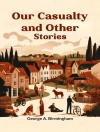In the satirical novel ‘John Bull, Junior; or, French as She is Traduced’ by Max O’Rell, the author uses humor and wit to critique the British perception of the French. Through the character of John Bull Jr., who visits France and encounters various cultural differences, O’Rell highlights the misunderstandings and prejudices between the two nations. The book is written in a light-hearted and entertaining style, making it both informative and enjoyable for readers interested in cross-cultural relations in the late 19th century. O’Rell’s sharp observations and clever narrative make this book a valuable contribution to the understanding of Anglo-French relations at the time. Max O’Rell, a French author and humorist, drew on his own experiences as a traveler and lecturer to provide insightful commentary on the cultural clashes between Britain and France. His unique perspective adds depth and authenticity to the novel, making it a compelling read for those interested in social commentary and international relations. Overall, ‘John Bull, Junior; or, French as She is Traduced’ is a witty and thought-provoking book that offers a humorous yet insightful look at the complexities of intercultural communication.
Over de auteur
Max O’Rell was the pen name of Léon Paul Blouet, born in Brittany, France, on March 2, 1848. Renowned for his humorous and satirical writings, O’Rell’s literary career flourished in the late 19th and early 20th centuries. Before gaining recognition as an author, O’Rell was an educator and served as a French master at London’s St. Paul’s School. His experiences in England greatly influenced his works, which often provided a comedic take on the cultural differences between the French and the English. One of O’Rell’s acclaimed books, ‘John Bull, Junior; or, French as She is Traduced’ (1887), exemplifies his style, cleverly dissecting the linguistic and societal nuances that give rise to misunderstandings between the two nations. O’Rell’s contribution to the literary field extends beyond just entertainment; his keen observations also served as commentary on the social and political aspects of his era, resonating with both French and English readers. O’Rell’s writings encapsulate the wit and charm of a bygone era and continue to be read by those interested in cross-cultural analysis and historical humor. He passed away on May 25, 1903, but left behind a legacy that still elicits smiles and nods of recognition for its astute portrayal of human nature and national idiosyncrasies.












